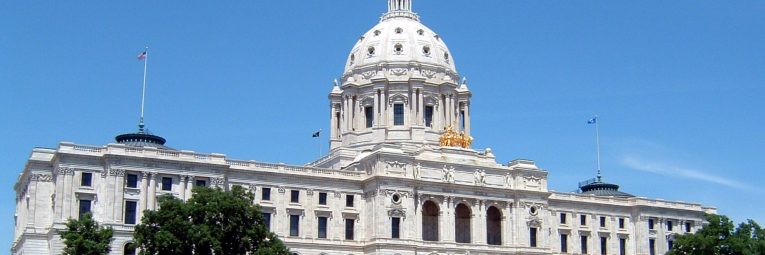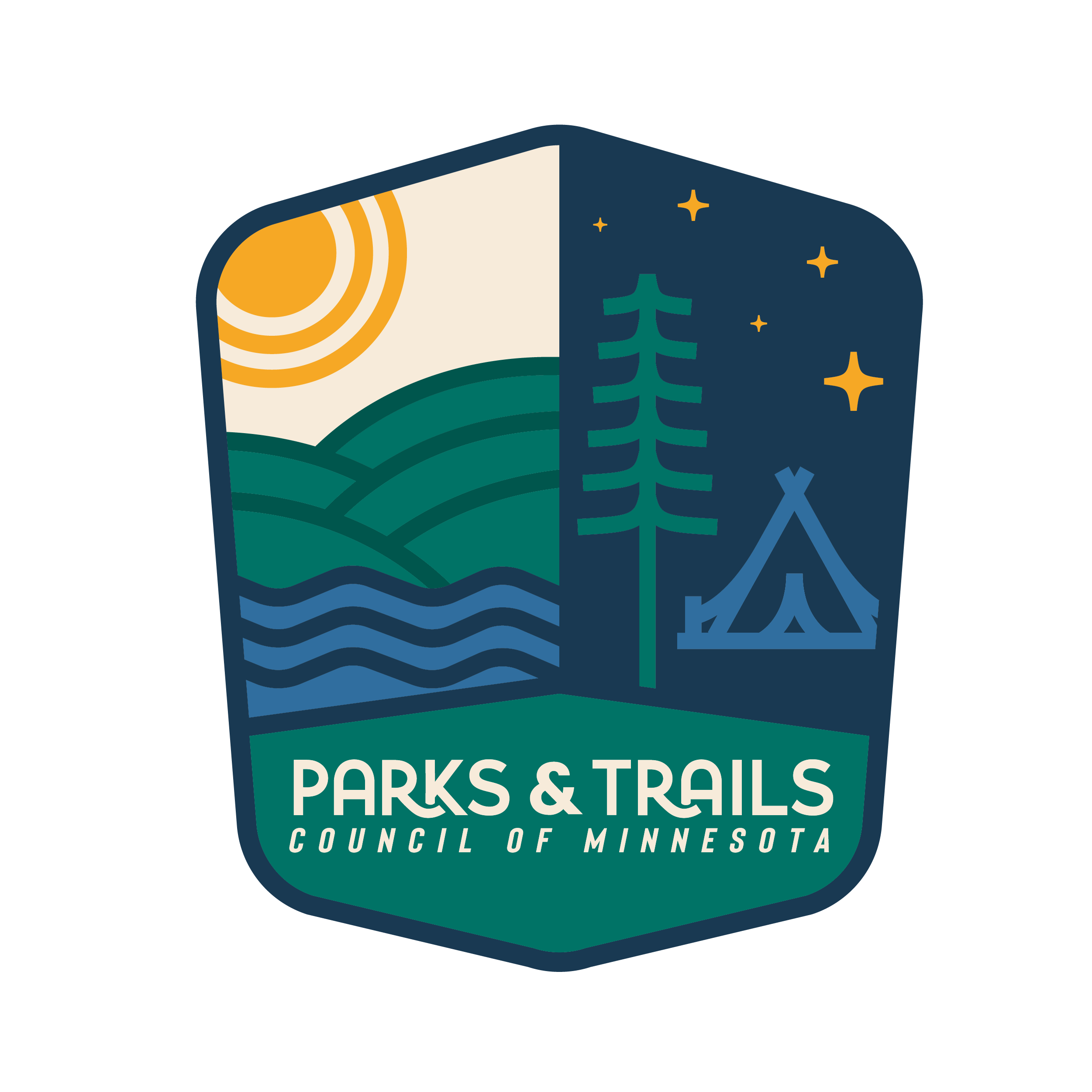- Home
- Advocacy News
- Legislative Session ends with mixed bag for parks and trails

Legislative Session ends with mixed bag for parks and trails
The 2017 legislative session is finally over. Minnesota lawmakers wrapped up a four-day special session early Friday morning, and Gov. Dayton signed most of the bills into law on Tuesday following the Memorial Day holiday.
While there are still a few outstanding issues at the Capitol, all the legislation impacting parks and trails appears settled. Parks & Trails Council is disappointed by some of the legislative outcomes, but overall parks and trails fared better than we had feared a few weeks ago. A big thank you to everyone who reached out to their legislators and gave parks and trails a voice.
Below we’ve provided a summary of how the key pieces of legislation affecting parks and trails unfolded.
Parks and Trails Budget
The Omnibus Environment Budget (SF 844) sets the two year budget for state park and trail operations. The good news is the budget should provide sufficient funding to avoid staffing and service cutbacks in state parks and trails, thanks to a key last-minute concession won by Gov. Dayton that gives the MnDNR a department-wide operating adjustment from the general fund, intended to cover inflationary increases. In addition, the budget provides important funding for local park and trail grant programs.
The bad news:
- The budget cuts the state parks and trails general fund appropriation from $27.4 million per year down to $24.4 million per year. This is particularly disappointing when you take into account the state’s $1.6 billion surplus.
- The budget backfills the $3 million general fund cut with a 40 percent increase in state park entrance fees. The annual pass will cost $35 and daily $7 (up from $25 and $5). Several reasons why this is unfortunate:
- Such a steep hike in entry fees could discourage people from visiting state parks, particularly lower income people who deserve access to state parks just as much as everyone else. This fee makes Minnesota higher than neighboring states and higher than many visitors have indicated they are willing to pay in surveys.
- Maintaining the $27.4 million in general fund support from FY2016 would have provided more funding than the 40 percent fee increase. And over the long-term, that would have been more sustainable.
Environment & Natural Resources Trust Fund (LCCMR)
The Environment and Natural Resources Trust Fund bill (SF 550) appropriates revenues from the Minnesota Lottery dedicated to protect, conserve, preserve, and enhance Minnesota’s air, water, land, fish, wildlife, and other natural resources. The Environment and Natural Resources Trust Fund typically funds projects recommended by the Legislative Citizens Commission on Natural Resources (LCCMR). This year, the bill funds numerous parks and trails projects, including:
- $1,500,000 for state park land acquisition
- $1,038,000 for state trail acquisition and development
- $672,000 for pollinator habitat in state parks
- $2,269,000 for continued development of the Mesabi Regional Trail
- $950,000 for a new Voyageurs National Park visitor center in Crane Lake
- $293,000 for a study on wolves in Voyageurs National Park
Up until the last day of session, it was unclear if the LCCMR-recommended park and trail projects would be funded. Earlier drafts of the legislation controversially removed some recommended projects, and included “no net gain”language that would have made the already difficult task of acquiring land for parks and trails even more difficult. In the end, the LCCMR-recommended projects were funded and the “no net gain” language was removed. We are thankful lawmakers reached a compromise that continues the Environment & Natural Resources Trust Fund’s long tradition of supporting Minnesota’s parks and trails.
Legacy Funds
The Omnibus Legacy Bill (HF 707) appropriates revenues from the Legacy Amendment. The bill appropriates $88 million from the Parks and Trails Fund over the next two years, of which 40% is available for state parks and trails, 40% is available for regional parks and trails in the Twin Cities Metropolitan Area, and 20% is available for grants to regional parks and trails in Greater Minnesota. Legacy Funds are used to develop new outdoor recreation opportunities, take care of existing outdoor recreation facilities, create new initiatives to connect more people to the outdoors, and coordinate park and trail partners.
Bonding
The final piece of the budget agreement was a $988 million bonding bill (HF 5), which passed in the wee hours of Friday morning. The bonding bill funds building and infrastructure projects, including park and trail projects. Specifically, the bill includes:
- $15 million for DNR Asset Preservation. This money is used by the DNR to fix crumbling infrastructure, including buildings, roads, trails, and campgrounds. This appropriation can be spent on all DNR-owned properties including, but not limited to, parks and trails.
- $5 million for Metropolitan Regional Parks and Trails
- $3.6 million for Cuyuna State Recreation Area
- $3.5 million for Lake Vermilion/Soudan Underground State Park
- $3.3 million for the Gitchi Gami State Trail
- $2.6 million for the Glacial Lakes State Trail
- $3.3 million for the Heartland State Trail
- $1.6 million for the Camp Ripley State Trail
- $328k for the Mill Towns State Trail
Thank Yous
We’d like to give a special thanks to the following leaders for the bills they helped pass:
Parks and Trails Budget
Gov. Mark Dayton
Sen. Bill Ingebrigtsen (R-Alexandria)
Sen. Carrie Ruud (R-Breezy Point)
Parks and Trails Legacy Fund
Rep. Bob Guntner (R-Fairmont)
Sen. Carrie Ruud (R-Breezy Point)
State Parks and Trails Bonding Bill
Rep. Dean Urdahl (R-Grove City)
Sen. David Senjem (R-Rochester)
Rep. Alice Hausman (DFL-St. Paul)
Sen. Carrie Ruud (R-Breezy Point)
Sen. Justin Eichorn (R-Grand Rapids)
Sen. Tom Bakk (DFL-Cook)
Sen. Charles Wiger (DFL-Maplewood)
Sen. Melissa Franzen (DFL-Edina)
Rep. Mary Murphy (DFL-Hermantown)
Rep. David Bly (DFL-Northfield)
Rep. Dave Baker (R-Willmar)
Rep. Dale Lueck (R-Aitkin)
Rep. Josh Heintzeman (R-Nisswa)
Rep. Rob Ecklund (DFL-International Falls)
Rep. Leon Lillie (DFL-North St. Paul)
About Lisa Filter
News Categories
Recent News
-
Painting the park office at... January 7, 2025
-
We have a new CRM December 11, 2024
-
Vote yes on Lottery proceeds October 29, 2024
-
Two Friends Groups receive ... August 28, 2024
-
Share your opinion on fundi... August 27, 2024
